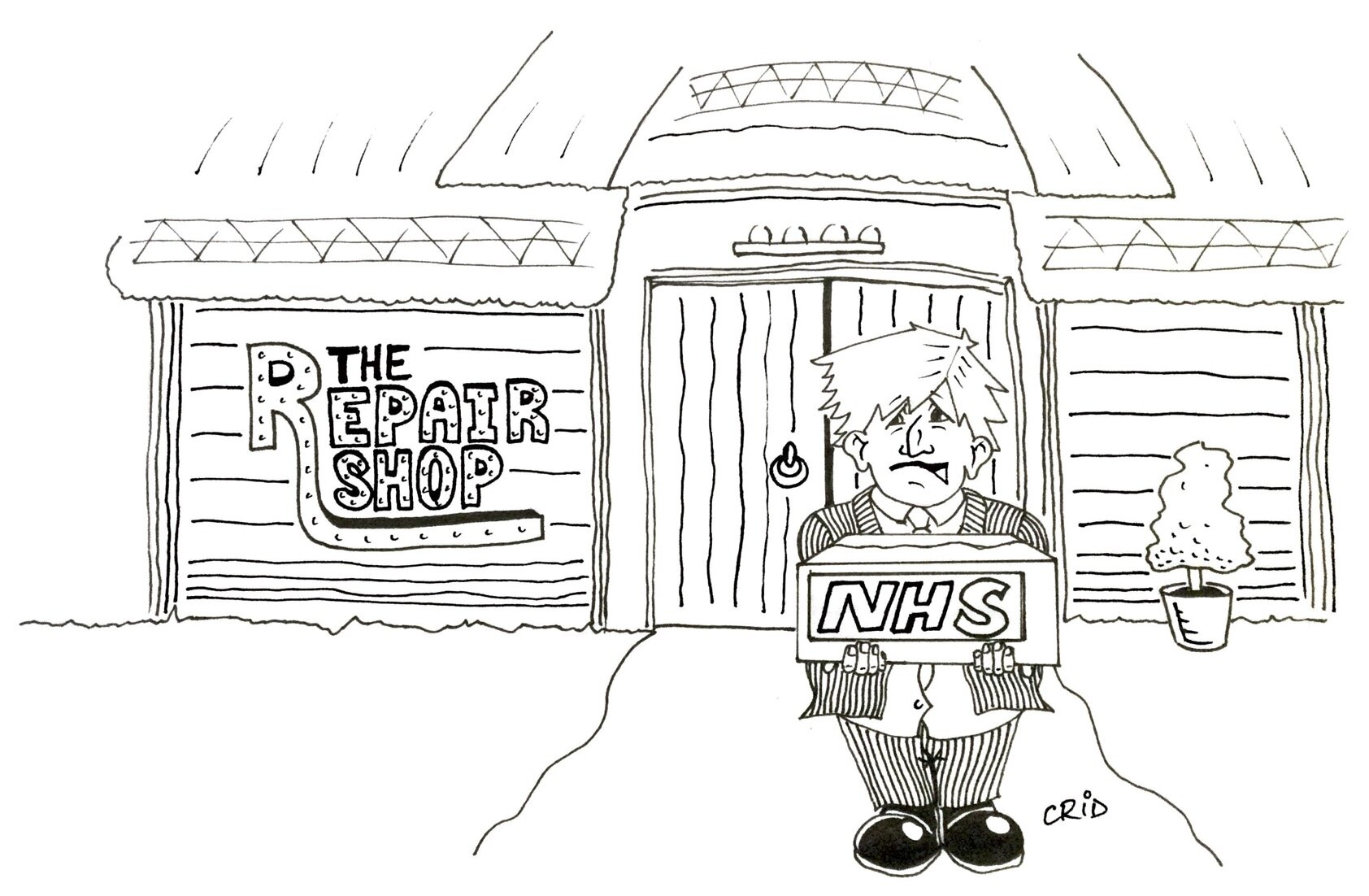The real crisis will begin when lockdown ends
History will show that it was lockdown - rather than Covid - which snapped the NHS’s, and Britain’s, spine.
This article features in our latest print issue, Issue XX, which you may purchase here. Subscribe to receive future print issues here (alternatively, you can subscribe to receive online versions of future issues here).
Despite roughly ten people dying within twenty-eight days of a positive Covid-test per day (in a population of sixty million plus), the pandemic is construed as the single greatest catastrophe of the 21st century – and there’s still seventy-nine years to go. What many fail to see is that, like the aftermath of a natural disaster, the true scale of the damage will only manifest once this violent stage has passed.
The magic weapon of lockdown, a disproportionate and draconian response, is heralded as the only solution. Even the promised ‘light at the end of the tunnel’ (the vaccination roll-out) has been swiftly swept under the rug out of fear that the necessity of such a policy will be called into question.
While lockdown arrived like a 9.0 magnitude earthquake to our daily lives, it is the aftershocks that will be much more noticeably devastating, particularly as the last two years soon become a distant memory. The task of reconstruction will be a monumental undertaking comparable to the current carpet-bombing mentality poured into the initial fight against Covid.
Civil liberties, to the economy, to physical and mental health, to educational attainment, and so on and forever onward, have already been severely damaged through backlogs and disruptions, but the work to reverse the impact of lockdown will constitute a greater crisis.
The so-called job saving Furlough scheme must come to a close one day, and the number of jobs lost will be far great, for Chancellor Rishi Sunak’s magic money tree is a clever trick to cloud the reality on the ground as profit-starved and bankrupted employers have handed their former staff over to the financial care of the Treasury. Given this secrecy and the ever-changing Furlough termination dates, it is difficult to predict and examine what the economic fallout might be. But I think it will most likely resemble the 1980s when unemployment topped three million.
In addition, consumer spending will likely either stagnate or possibly retract as a deadly combination of high taxes, unemployment, and austerity will emerge in the Chancellor’s budget - all factors being necessary to pay off the record levels of borrowing and spending. Talk of a Whitehall ‘pension’s tax raid’ merely serves as a reminder for what’s to come. But material wealth is only one piece of the puzzle. Covid Anxiety Syndrome, created and fuelled by the Government’s relentless fear operation, has turned millions into hysterical hypochondriacs and it will have long-lasting effects. Many fear to return to what was once normal sociable activities out of fear of their skin catching someone else’s breath, adding fuel to Britain’s mental health bonfire.
Not so long ago, mental health became the new taboo to be overcome; television adverts and documentaries were devoted to ‘breaking the stigma’ around mental health. Yet, as with many societal malaises, lockdown has only made the problem worse. The number of children prescribed anti-depressants rose sharply in March 2020, with slight falls in the total figure when restrictions were temporarily relaxed only to be ignited again when full lockdowns came back into force. Social isolation has always been behind Britain’s mental health woes (why do you think the Government drafted in a ‘Minister for Loneliness’?).
Lastly, I could drone on and on, but I will depart with this seemingly untouched conundrum. Who wants to restart the weekly ritual of clapping outside their front doors on a Thursday evening to congratulate the hard work of our heroic NHS workers? Who wants to say a prayer for the NHS in a time of crisis? Because crisis is what the NHS will run into like a car into a brick wall once it attempts to roll back its patient backlog. Roughly 12.2 million patients are in need of treatment, a figure which Health Secretary Matt Hancock remarked was twice as big as originally thought. Britain’s cash strapped, overburdened and under-manned jewel in the nation’s crown will truly reach breaking point.
History will show that it was lockdown - rather than Covid - which snapped the NHS’s, and Britain’s, spine.

